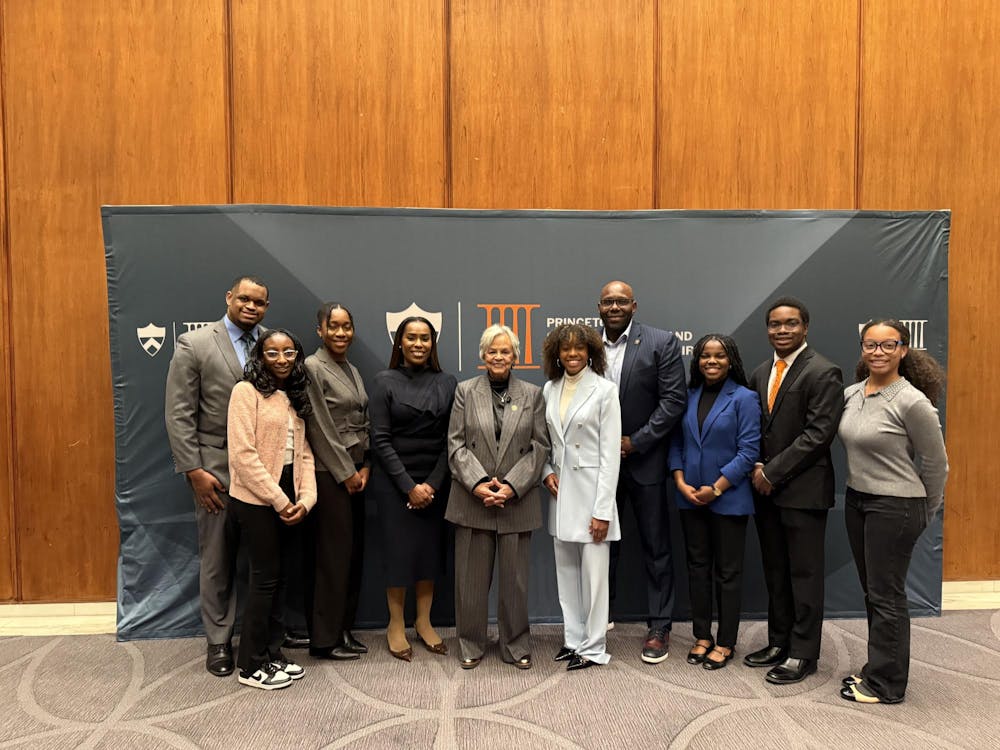Dressed in a crisp blue jacket with his white hair neatly combed, renowned journalist Russell Baker looked like he was about to give a serious academic speech.
Yet, from his first words during a lecture in McDonnell last night, he made the audience chuckle again and again with witticisms aimed at his colleagues — members of the news media.
Baker would probably take offense at being categorized as a part of the media, however — a group that he feels has "nothing to do with news."
Part of the Princeton University Lectures Series, Baker's talk, titled "The Age of the Superstory," addressed the evolution of journalism. Where the press once chased the news, the media now merely provides entertainment, Baker said.
When Baker began his career at The Baltimore Sun in 1947, he was considered a journalist, and the concept of the media had not even evolved.
An aura of glamour and romance defined the popular perception of the reporter's life, with actors like Jimmy Stewart '32 making the profession famous on the silver screen. Baker said reporters drank a lot of gin, smoked a lot of cigarettes and got the story, which is what reporters were supposed to do in those days.
In keeping with that image, Baker said he "pursued facts with a childlike faith."
Since those days, the press has evolved into the media, concerning itself less with objective reporting and more with "passing judgments" and "making predictions."

Baker cited the Sunday news panels that have become so prevalent in recent years, where instead of presenting the facts, panelists discuss "who ought to get divorced" or "who should get a haircut."
During the Monica Lewinsky scandal — which Baker termed a "superstory" — the media over-stepped its bounds, becoming morally outraged at the president's conduct and even urging his resignation, Baker said. Coverage became excessive at the expense of other stories — so much so that news anchors left Cuba during Pope John Paul II's visit to cover the Clinton scandal.
Baker also said that though Congress is responsible for allocating the nation's resources — especially federal funds — the media pays little attention. Reporters are much more interested in covering the presidency, which Baker said can be a soap opera, "sitcom, family drama or comedy" all at once.
On the whole, the media has become too involved in the entertainment aspect of reporting, and has begun to lag in the actual pursuit of news, Baker said.

Characterizing the media as "a powerful force as pervasive as the air we breathe," Baker said today's journalists are a far cry from the glamourous, gin-drinking personalities of 50 years ago — polluting the news more than purifying it.







